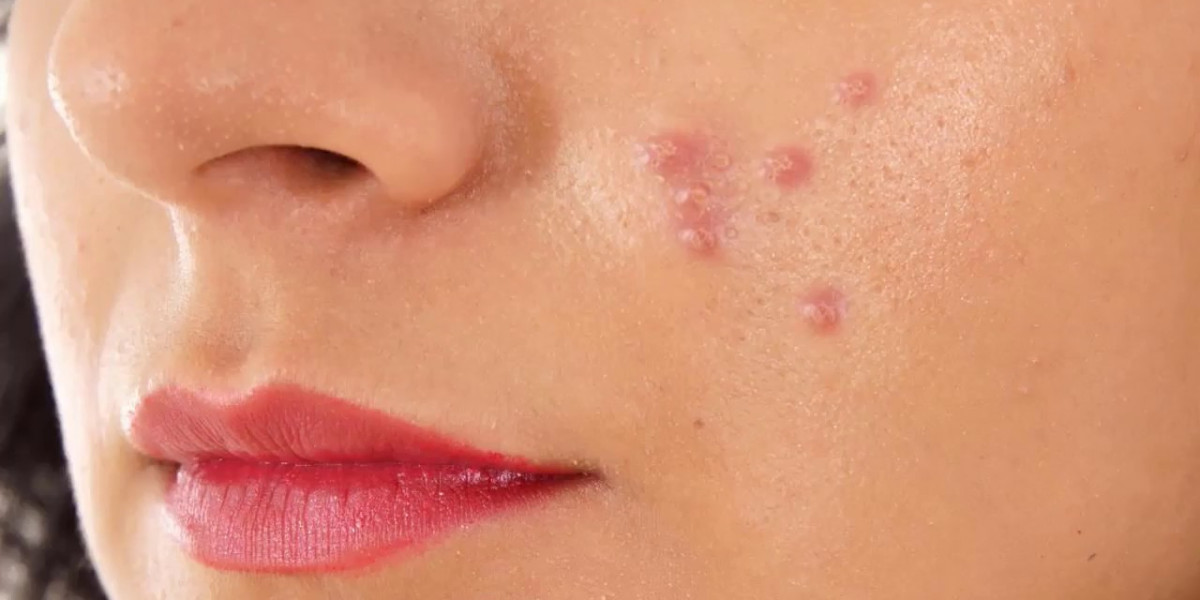Acne is a common skin condition that affects people of all ages. It has been the subject of various myths and misconceptions, and one of the most common questions that arise is whether chocolate causes acne. Many individuals believe that eating chocolate, particularly dark chocolate or milk chocolate, contributes to the development of pimples and acne breakouts. In this article, we will explore the science behind this belief, examine whether chocolate has a direct impact on acne, and provide insights into how other factors may contribute to skin health.
The Myth of Chocolate and Acne
For years, the idea that chocolate causes acne has been perpetuated, often by well-meaning but misguided individuals. While chocolate itself is not a guaranteed cause of acne, some people may experience breakouts after consuming it. However, the relationship between chocolate and acne is far more complex than simply blaming one food.
Acne is primarily caused by clogged pores, which can become blocked with excess oil, dead skin cells, and bacteria. The buildup of these substances can lead to inflammation and the formation of pimples. Hormonal fluctuations, stress, genetics, and even diet can influence the severity of acne, but there is no definitive evidence that chocolate directly causes acne in all individuals.
The Science Behind Chocolate and Acne
The key to understanding whether chocolate can cause acne lies in how it affects the skin and the body. There are two main types of chocolate: dark chocolate and milk chocolate, both of which contain different ingredients that can have varying effects on the body.
Dark Chocolate: Dark chocolate is often praised for its health benefits due to its higher concentration of cocoa and antioxidants. Cocoa contains flavonoids that are known for their anti-inflammatory properties, which can help reduce the risk of skin irritation and acne. However, dark chocolate also contains some amount of sugar, which can increase insulin levels and promote the production of sebum (skin oil). Excess sebum production can contribute to clogged pores and acne, but dark chocolate alone is unlikely to be the sole cause.
Milk Chocolate: Milk chocolate, on the other hand, contains more sugar and dairy than dark chocolate. Dairy has been linked to an increased risk of acne, particularly in people who are sensitive to it. Studies have shown that dairy products, including milk, can elevate insulin levels and trigger hormonal changes that promote acne development. For individuals with a sensitivity to dairy, consuming milk chocolate could potentially exacerbate acne breakouts.
Sugar and Refined Carbs: One of the primary concerns when it comes to chocolate and acne is the sugar content. High-glycemic foods, including sugary chocolates, can cause a spike in blood sugar and insulin levels. This can lead to increased oil production in the skin, which in turn contributes to clogged pores and the development of acne. While chocolate is not the only food with high sugar content, its consumption in excess may indirectly affect the skin, especially for individuals who are already prone to acne.
Other Factors That Affect Acne Development
While chocolate may play a small role in acne development for some people, there are many other factors that contribute to the condition. Acne is a multifaceted problem, and its triggers can vary from person to person. Here are some of the most common causes of acne:
Hormonal Fluctuations: One of the most significant factors in the development of acne is hormonal changes. Adolescents often experience acne due to puberty-related hormone fluctuations. Hormones like androgens can increase the size and activity of sebaceous (oil) glands, leading to excess oil production. Hormonal changes during menstruation, pregnancy, and the use of birth control can also contribute to acne flare-ups.
Stress: Stress is known to trigger acne by increasing the production of cortisol, a hormone that can promote inflammation in the body. This inflammation can contribute to the development of acne, especially in individuals who are genetically predisposed to it.
Diet and Nutrition: While chocolate may not directly cause acne, other dietary factors may contribute to breakouts. A diet high in processed foods, sugar, and dairy products can increase the likelihood of developing acne. Eating a balanced diet rich in fruits, vegetables, lean proteins, and whole grains may help improve skin health.
Genetics: Genetics play a major role in determining whether someone is prone to acne. If your parents had acne, there is a higher likelihood that you may develop it as well. However, genetics alone are not the only factor; environmental influences and lifestyle choices also play a significant role.
Skincare Habits: Using harsh skincare products, over-washing your face, or not removing makeup properly can all contribute to acne. It’s important to have a consistent skincare routine and use gentle products that won’t irritate or clog pores. For those struggling with acne, it is recommended to consult a professional, such as an esthetician, who can offer tailored advice and treatments.
The Role of Esthetics in Acne Treatment
When it comes to managing acne, esthetics play an important role. Skin professionals, like those at estheticsbymonica, can provide valuable advice and services to help individuals manage their acne. Estheticians are trained to assess skin conditions and recommend appropriate treatments, such as facials, chemical peels, and extractions, to address acne concerns.
A proper skincare regimen that is tailored to your skin type and acne severity is essential. Estheticians can also provide guidance on how to avoid certain skincare ingredients that may exacerbate acne, such as comedogenic (pore-clogging) substances.
Tips for Managing Acne
Whether or not chocolate affects your acne, there are several steps you can take to manage and reduce acne breakouts:
Maintain a Healthy Diet: Focus on eating a balanced diet rich in antioxidants, vitamins, and minerals. Avoid excessive sugar and processed foods, and limit your intake of dairy if you find it triggers breakouts.
Stay Hydrated: Drink plenty of water throughout the day to keep your skin hydrated and flush out toxins.
Use Non-Comedogenic Skincare Products: Look for skincare products that are labeled “non-comedogenic,” which means they won’t clog pores. Use a gentle cleanser and moisturizer suited for acne-prone skin.
Manage Stress: Try stress-reducing activities like yoga, meditation, or exercise to help lower cortisol levels and reduce acne flare-ups.
Consult with a Dermatologist or Esthetician: If your acne is persistent or severe, consult with a dermatologist for professional advice or visit an esthetician at a reputable clinic, such as estheticsbymonica, for personalized treatments and recommendations.
Conclusion
In conclusion, chocolate alone is unlikely to be a direct cause of acne. While the sugar and dairy content in some types of chocolate may exacerbate acne in certain individuals, it is not the sole contributor to breakouts. Acne is a complex condition influenced by various factors, including hormones, stress, diet, genetics, and skincare habits. By understanding these factors and working with professionals like those at estheticsbymonica, individuals can take proactive steps toward managing their skin and maintaining clear, healthy complexion.
It’s important to remember that everyone’s skin is different. What causes acne in one person may not necessarily have the same effect on another. For those who suspect chocolate or other foods may be triggering their acne, it can be helpful to keep a food diary and track any correlations. Ultimately, achieving clear skin requires a holistic approach that considers diet, lifestyle, and skincare choices, rather than simply blaming one specific food or ingredient.








